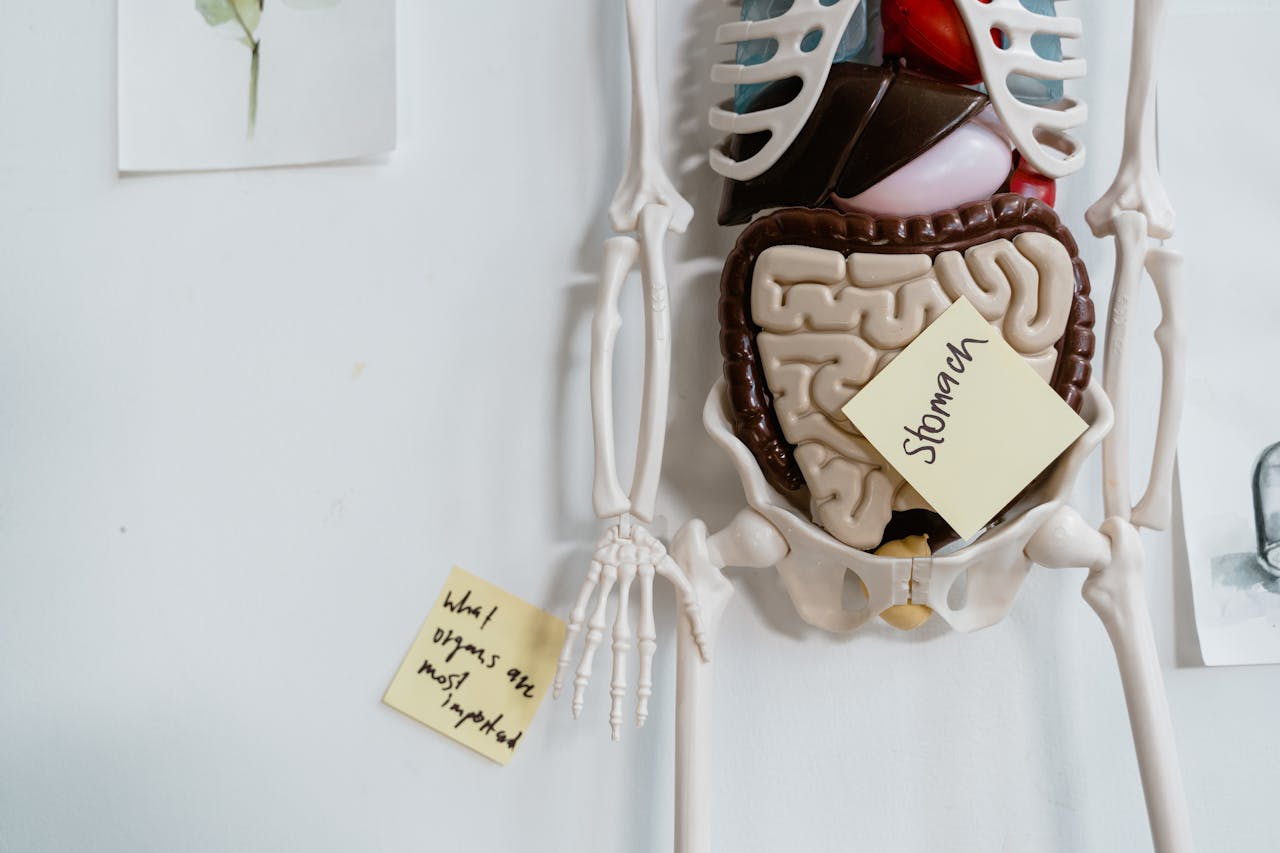How Stress Affects Digestion (and What to Do About It)
In today’s fast-paced world, stress is more than just a mental burden; it has tangible effects on our bodies, especially on our digestive system. If you’ve ever felt your stomach tied in knots before a big meeting or noticed digestive discomfort during times of emotional tension, you’re not imagining things. Let’s look at the powerful link between stress and digestion, and practical ways to support both your gut and your mind.
The Gut-Brain Connection: More Than a Metaphor
The gut-brain connection refers to the communication between your central nervous system, which includes your brain and spinal cord, and your enteric nervous system, the nervous system of your gut. This connection is so strong that the gut is often referred to as the “second brain.”
When you’re stressed, your brain sends signals to your gut, potentially altering gut motility, enzyme secretion, and even the balance of your microbiome. This can lead to symptoms such as bloating, cramping, indigestion, constipation, or diarrhea. Over time, chronic stress can wear down your digestive health, compromising your ability to absorb nutrients and maintain a healthy gut environment.
How Stress Impacts Digestion
Here’s what happens during periods of acute or chronic stress:
- Decreased stomach acid production: Stress can suppress the production of stomach acid, making it harder to break down food efficiently.
- Delayed gastric emptying: Your body slows digestion when it perceives danger, conserving energy for the “fight or flight” response.
- Changes in gut microbiota: Prolonged stress can negatively shift your gut bacteria, increasing inflammation and weakening immune function.
- Increased intestinal permeability: Often referred to as “leaky gut,” this condition can allow toxins and undigested food particles to enter the bloodstream, potentially triggering immune responses.
Supporting Your Gut and Mind: What You Can Do
The good news? There are science-backed, practical strategies to calm your nervous system and support digestive health.
Mindful Eating
It’s simple yet effective: slow down during meals! Avoid multitasking and take the time to chew thoroughly. This not only aids digestion but also signals your body that it’s safe to rest and digest.
Practice Stress Reduction Techniques
Incorporate daily stress relief practices such as deep breathing, yoga, journaling, or meditation. If your schedule is packed, keep in mind even 5–10 minutes a day can make a difference.
Prioritize Sleep
Sleep is necessary for your body repairs and regeneration, and yes this includes your gut! Aim for 7–9 hours of quality rest each night to help regulate both your stress response and your digestive system.
Choose Gut-Friendly Foods
- Probiotics (yogurt, kefir, sauerkraut)
- Prebiotics (garlic, onions, and bananas)
- Anti-inflammatory foods (fatty fish, leafy greens, and berries)
- Consider Functional Supplements
While food and lifestyle should always come first, some supplements can offer additional support for the gut-brain connection and stress management:
- Ashwagandha: This adaptogenic herb has been shown to lower cortisol levels and promote a calmer nervous system which in turn supports better digestion.
- CBD Hemp: Cannabidiol (CBD), derived from hemp, may help ease anxiety and reduce gut inflammation, promoting a more balanced gut environment.
- Aloe Plus: Aloe vera has soothing properties that can support the gut lining and reduce irritation in the digestive tract. Look for formulas combined with other botanicals for added benefits.
Final Thoughts
You can’t always eliminate stress, but you can change how your body responds to it. By nurturing your nervous system and your digestive tract together, you can build resilience from the inside out.

